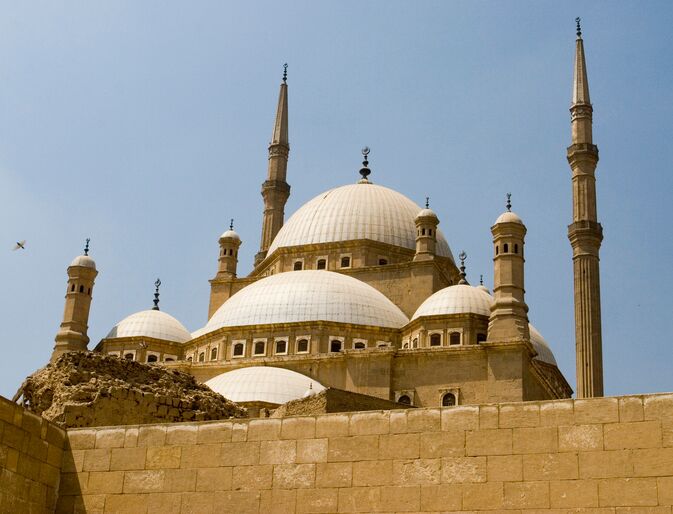
The Frightening Face of Middle East Democracy
“A long-anticipated day of reckoning is at hand in Egyptian politics,” said a story on the International Herald Tribune website late yesterday. It was referring to the fact that the Muslim Brotherhood, “an illegal organization with a violent past,” won 88 seats in recent parliamentary elections, when candidates from the officially banned Islamic group were permitted to run as independents. That phenomenal showing—which occurred despite governmental interference in the election process intended to limit the Brotherhood’s success—represents a six-fold increase the group’s political representation and makes it the strongest opposition group in Egypt’s parliament.
The Brotherhood’s political platform calls for “supporting the national resistance in all occupied Arab lands, in Palestine, Golan and Iraq, with all possible means.”
These election results have startling implications. The IHT article said, “The question emerging here and across the region—Palestinian elections are next month—is to what extent political reform, a U.S. priority, can be introduced without popular and effective Muslim parties like the Brotherhood exploiting the new freedoms to create repressive, and anti-American, theocracies.”
A political science professor at Cairo University, Mohamed Kamal, said, “We have not been able to face this dilemma for so many years. Now we have to confront it, it’s in our faces. You cannot have a true democracy in Egypt without reaching some kind of accommodation between religion and politics” (emphasis ours).
This is a truth that the Bush administration—as it has lobbied for the spread of democracy throughout the Middle East—has simply not come to grips with.
In The Clash of Civilizations, Samuel Huntington spoke of the “democracy paradox”—that “adoption by non-Western societies of Western democratic institutions encourages and gives access to power to nativist and anti-Western political movements.” What is happening in Egypt is merely the latest example of a truth that has played out in the Middle East time and again.
Revolution in that region has consistently produced authoritarian, anti-Western regimes. When tyrants have been overthrown, this has generally cleared the way for even more aggressive tyranny. Consider the history of the military coup that installed Nasser in Egypt in 1952; the Libyan Revolution that empowered Qadhafi in 1969 (still in power); the coup that inducted Kassem in Iraq in 1958—followed by the coup that brought the Baath party to power in 1963 and opened the way for Saddam Hussein to become president in 1979. Revolution in Iran produced an Islamic theocracy under Ayatollah Khomeini.
Democracy has a much shorter history in the region, but one just as worrisome. Consider the 1991-92 elections in Algeria—the Arab world’s only truly free elections to that point. Islamic parties won the first round by a landslide. Feeling threatened, the military annulled the election (with U.S. approval), leading to years of virtual civil war in the country. The military-backed regime has preserved a facade of democracy, all the while locking out the Islamists from the political process.
In 2002 elections in Turkey, the Justice and Development Party, which had recently been formed out of a banned Islamic movement, came to power with a two-thirds majority in parliament. It’s worth noting that it was this Islamic-oriented party that denied the U.S. use of Turkey’s military bases during the Iraq war. Today, anti-Americanism in Turkey is rampant.
Given these past examples, it is utterly naive to expect that the spread of democracy in the bitter desert sands of these Arab and Islamic nations will produce a sudden blossoming of goodwill toward the West. The facts point to the opposite. It should come as no shock that the liberalization of the electoral process in Egypt has empowered a violent and ideologically dangerous organization such as the Muslim Brotherhood.
Biblical prophecy indicates that Egypt will fall into the ambit of an extremist Iranian-led coalition of Middle Eastern nations. The Trumpet has long forecasted a radicalization within Egyptian politics. Given the make-up of Egypt’s electorate, the more it is allowed to express itself, the more Islamified and radical it will become.
